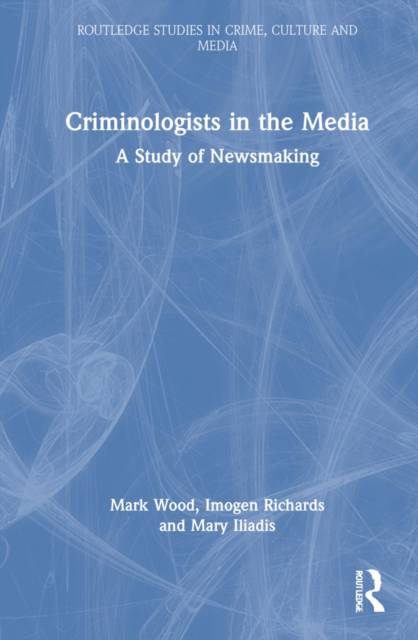
- Afhalen na 1 uur in een winkel met voorraad
- Gratis thuislevering in België vanaf € 30
- Ruim aanbod met 7 miljoen producten
- Afhalen na 1 uur in een winkel met voorraad
- Gratis thuislevering in België vanaf € 30
- Ruim aanbod met 7 miljoen producten
Omschrijving
Criminologists in the Media presents the results of a cross-national study examining the structures that shape criminologists' contributions to news and social media discourse.
Drawing on interviews with criminologists and a survey of 1,211 criminologists working in the US, the UK, Australia, New Zealand, Canada, Ireland, and South Africa, this book represents the first cross-national study exploring how, why, and to what extent criminologists working in these countries engage in newsmaking and digital public criminology. Through examining the predictors of criminologists appearing in news media, the research presented in this book demonstrates that newsmaking practices within criminology are not reflective of equal access, interest, or opportunity. Rather, newsmaking operates within 'fields of power' shaped by the political economy of higher education, and researchers' academic rank, gender, and areas of research expertise. Together, these factors generate several 'situational logics' that predispose criminologists to pursue particular courses of action in promoting their personal projects. Key among these logics, Wood, Richards, and Iliadis argue, are a 'social logic' informing criminologists' moral-political views on newsmaking and an 'industrial logic' responsive to the demands of academic capitalism and the rise of the 'entrepreneurial' university.
With its focus on the practicalities, challenges, and inequities of newsmaking in the post-broadcast era, Criminologists in the Media will appeal to researchers interested in the public role(s) of criminology, as well as researchers concerned with the challenges of communicating social scientific knowledge beyond the academy.
Specificaties
Betrokkenen
- Auteur(s):
- Uitgeverij:
Inhoud
- Aantal bladzijden:
- 164
- Taal:
- Engels
- Reeks:
Eigenschappen
- Productcode (EAN):
- 9780367422301
- Verschijningsdatum:
- 6/05/2022
- Uitvoering:
- Hardcover
- Formaat:
- Genaaid
- Afmetingen:
- 156 mm x 234 mm
- Gewicht:
- 430 g

Alleen bij Standaard Boekhandel
Beoordelingen
We publiceren alleen reviews die voldoen aan de voorwaarden voor reviews. Bekijk onze voorwaarden voor reviews.











